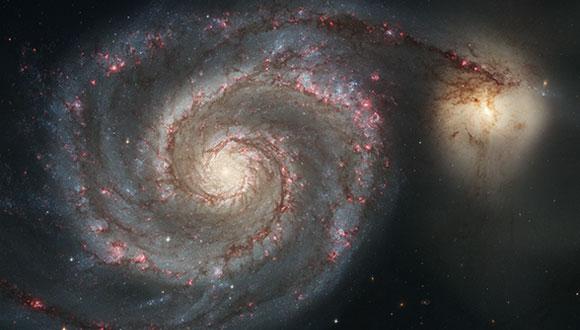Astronomy & Astrophysics Seminar: Precision Cosmology from Gravitationally Lensed Supernovae
Prof. Peter Nugent, Lawrence Berkeley National Laboratory, Berkeley
Abstract:
In 1929 Edwin Hubble rocked the physics community with his announcement that the universe was expanding - characterized shortly thereafter by his eponymous constant. Nearly 80 years later the field of cosmology has advanced tremendously with the discoveries of the accelerated expansion of the universe and precision measurements of both the universe's mass and energy densities. Amazingly, the most contested value in cosmology today is the first one that was measured, Hubble's Constant. There is currently a 3-sigma disagreement between local values, determined by supernovae and a maser, and distant ones from Baryon Acoustic Oscillations and the Cosmic Microwave Background. This implies that there are unknown systematics in either (or both) measurements or new physics. The key to unraveling this mystery lies in a method first proposed in 1964 by Sjur Refsdal - the measurement of time delays from gravitationally lensed supernovae. In the past year we have made great strides towards this goal with the discovery of the first multiply lensed Type Ia supernova and a new method which will increase the discovery rate of these objects by over an order of magnitude in the next decade. Here I will discuss this new tool for precision cosmology.
Seminar Organizer: Prof. Sara Beck


